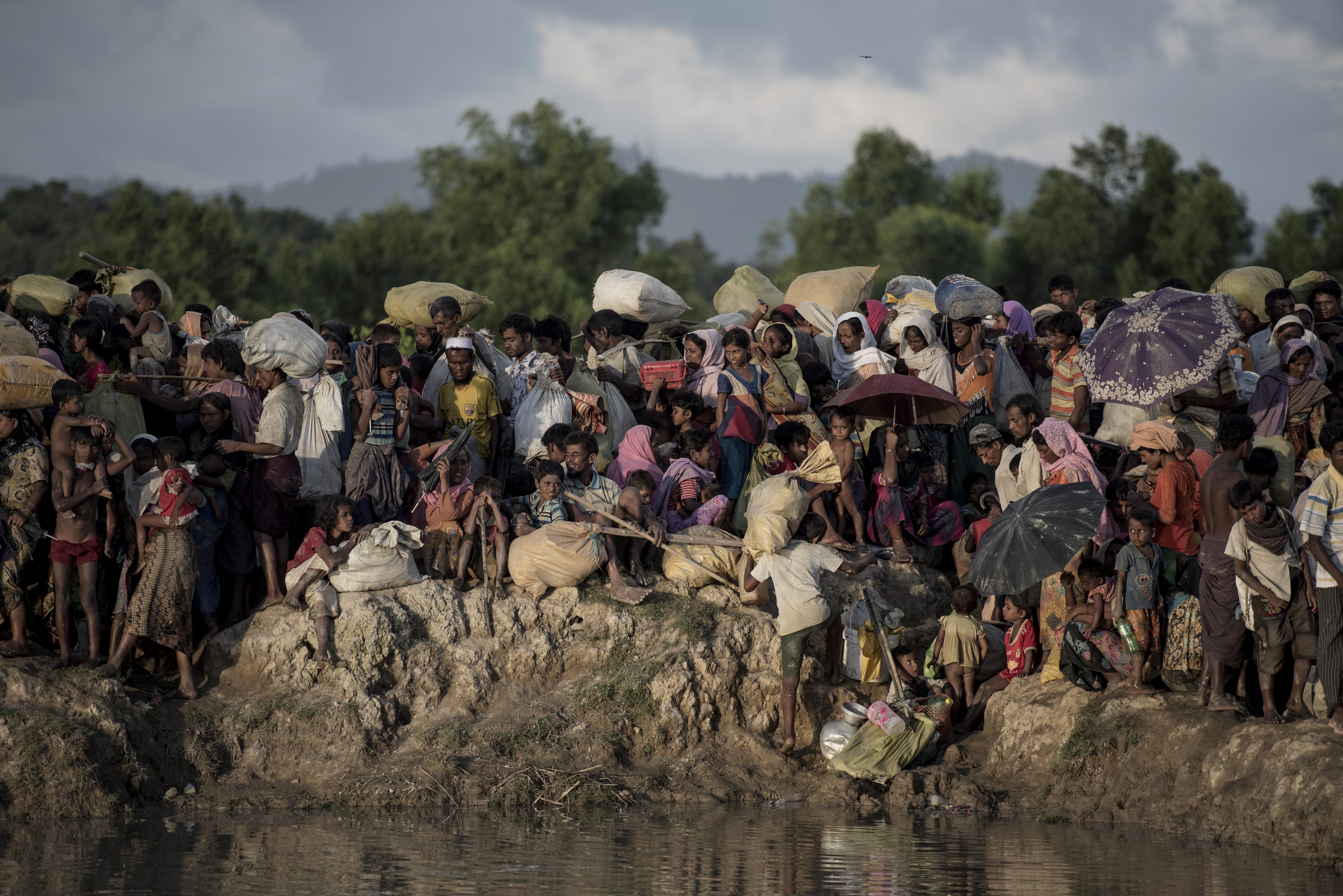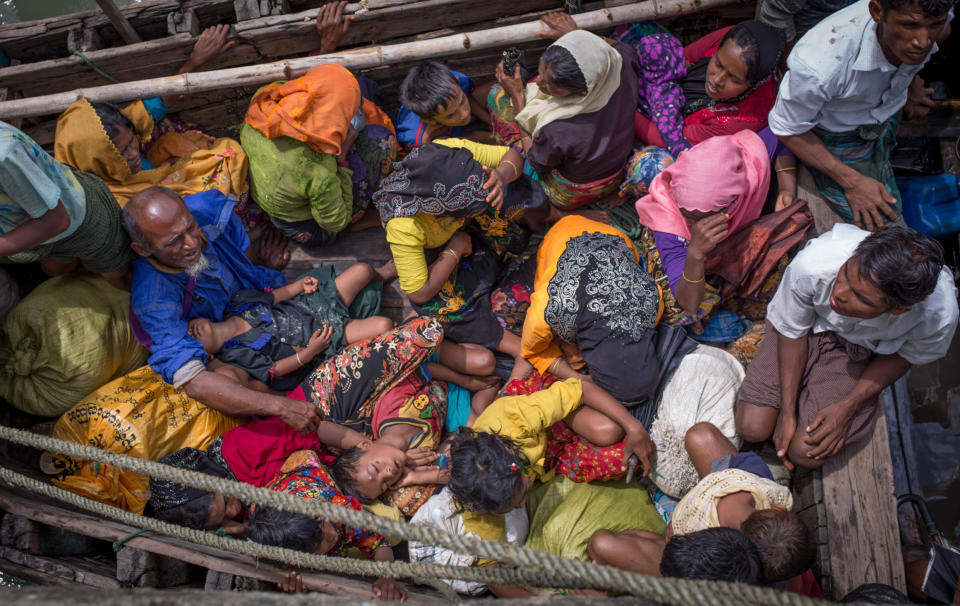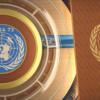The United Nations Human Rights Council has voted to set up a team to document crimes against the Rohingya minority in Myanmar. The council said the independent team will prepare evidence of possible human rights abuses and genocide for any future prosecution against Myanmar’s military.
Since the massive crackdown on the stateless minority group in 2017, more than 10,000 Rohingyas have died, and hundreds of thousands have fled.
CGTN’s Liling Tan filed this report on the status of the crisis today.
It’s a tragedy that has shocked the world. In a span of a year, more than 720,000 mostly Rohingya Muslims have fled Myanmar’s Rakhine State into Bangladesh, describing violent persecution by military forces there.
“They chased our Rohingya people, shot and killed them, raped women, burnt houses, damaged mosques,” recalled Mohammadys Ayyad, a Rohingya Refugee now in Cox’s Bazar, Bangladesh.
Long-brewing tensions erupted in August 2017. Deadly attacks by Rohingya insurgents on security forces in Rakhine were met with a government military response, which was criticized by rights groups as “heavy-handed” and “disproportionate.”
“One cannot allow that in the 21st century,” Adama Dieng, U.N. special adviser on the Prevention of Genocide said. “You have a group which is being discriminated because of its ethnicity, because of its religion. A group which has been denied the bare minimum of the status of a citizen.”
The Myanmar army denies responsibility, but a recent U.N. investigation found patterns of “gross human rights violations” against the ethnic minority group. The investigators want Myanmar’s top military generals investigated and prosecuted for possible genocide, crimes against humanity, and war crimes.
“Their call for the senior military officers in the country to be investigated for possible genocide is a very big deal, and this shows how far these crimes have gone,” Louis Charbonneau, the U.N. Director of Human Rights Watch said.
“I don’t think that anyone who has been following this closely is at all surprised that they found that there was potentially genocidal intent behind the removal of Rohingyas from Rakhine State.”

(FILES) This file photo taken on October 10, 2017 shows Rohingya refugees fleeing from Myanmar arrive at the Naf river in Whaikyang, Bangladesh border. (AFP PHOTO / FRED DUFOUR)
The investigation is a significant development in a crisis that has seen the Myanmar government restricting U.N. investigators and a divided U.N. Security Council. Criticism has also fallen on China, with the U.S. and various news reports suggesting that China is shielding Myanmar from Security Council action.
“As far as China is concerned, this is an internal political matter that needs to be dealt with through mediation,” Richard Gowan, a senior fellow for the Center for Policy Research at United Nations University said. “Now the Chinese are actually working quietly behind the scenes to avoid Myanmar becoming a really explosive item on the Security Council agenda.”
Beijing’s response is that the crisis needs to be handled delicately, given its complicated historical, ethnic, and religious contexts.
“Earlier on Myanmar and Bangladesh made some positive progress on properly resolving the Rakhine issue through dialogues, thanks to the concerted efforts of all parties,” Hua Chunying of the Chinese Foreign Ministry said. “Considering this, the international community should continue to play a constructive role in promoting dialogues and negotiations between Bangladesh and Myanmar to properly settle the issue. Unilateral criticism or pressure will not help solve the problem.”
Even so, foreign policy experts hope China can do more.
“I think this is a crisis in where it could have a huge impact. And I get a sense that China is torn. It’s torn between traditional allegiances, concerns about meddling in the sovereignty of another state, and the fact that I think it’s genuinely appalled by what it saw take place in Rakhine State last year,” Simon Adams, executive director of the Global Centre for the Responsibility to Protect said.
“I think China is absolutely in the position to be a responsible global citizen, to push for accountability, and to help make the Rohingya situation significantly better than what it is right now.”
Without U.N. Security Council action, some countries have imposed unilateral sanctions on Myanmar and increased pressure on State Counselor Aung San Suu Kyi. There is also a push for the case to the International Criminal Court (ICC) or an international criminal tribunal.
 CGTN America
CGTN America


